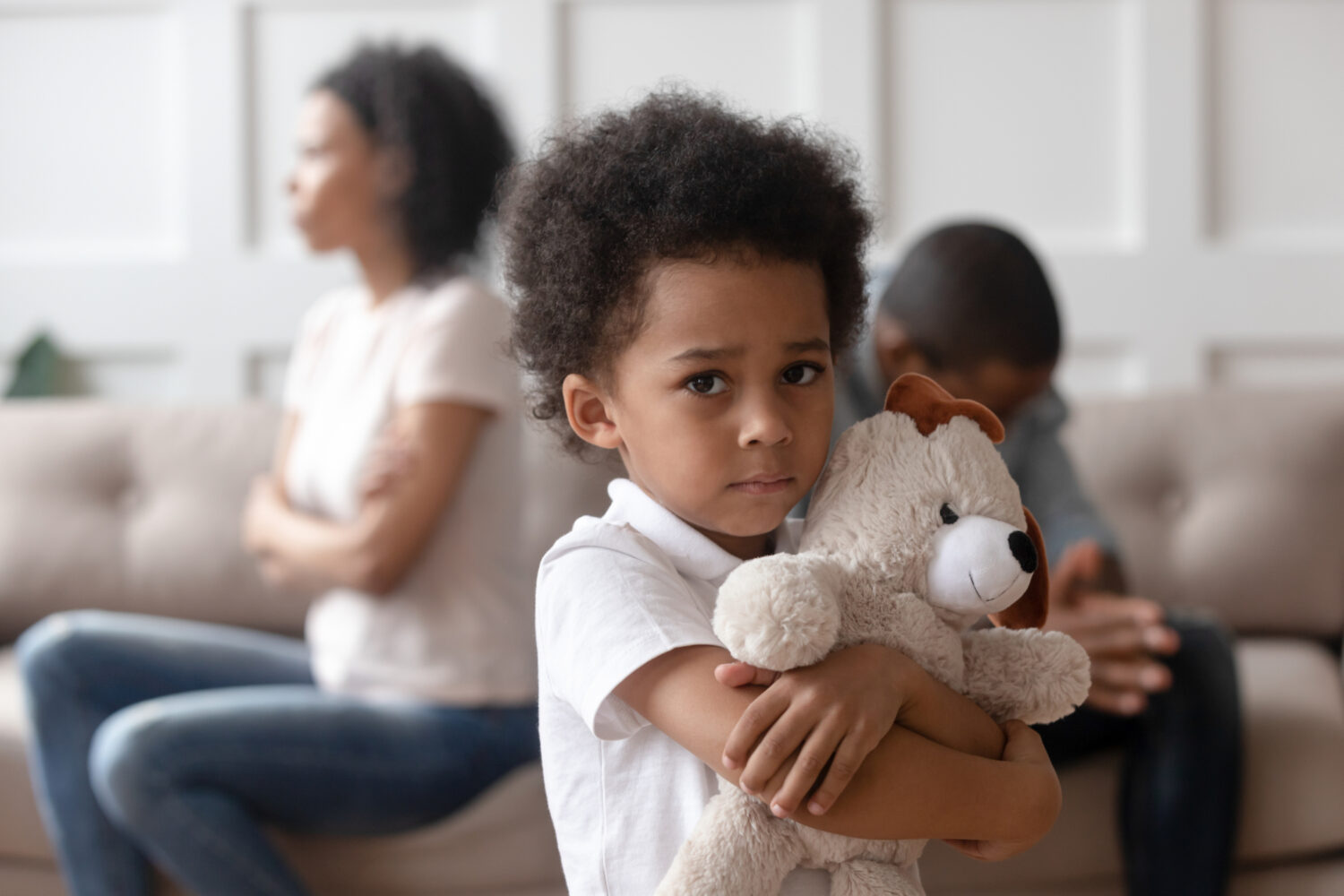
Complex divorce
When partners get divorced, it is a major event in the lives of all family members. In complex divorces, the ex-partners have serious issues between them and proper communication appears to be impossible. After a divorce, ex-partners sometimes continue to argue or say bad things to or about each other. This creates a difficult and emotional situation.
Divorce is usually a very stressful experience for the adults involved; not only the divorce as such, but also changing (network) relationships, the often necessary relocations and changes in disposable income. As with many other traumatic experiences, it takes quite some time to come to terms with the new situation. This period often progresses in phases of ‘denial’, ‘reproach’ and ‘resignation’, which are characteristic of a grieving process, with the possibility of the partners being in different phases of that process. This in turn can cause unrest between ex-partners/parents.
Parents usually manage to shield their children from the worst of the impact. In a number of cases, they fail to do so. Parents can get entangled in mutual conflict, for example, about the division of property, maintenance and where their child should live. Especially if parents involve or use their children in their mutual struggle or messy divorce, it can cause the child to feel unsafe and lose confidence in its parents. Children can get into a loyalty conflict or suffer from feelings of guilt. The consequences can be harmful to their development.
Are you affected by (violence in) a complex divorce?
This is what you can do!
Contact Safe Home
Safe Home is for everyone who is directly or indirectly affected by domestic violence and child abuse.
You can call for advice and support. This can either be for yourself or for someone else. You’ll speak to an employee who will listen carefully to what you have to say. This employee answers questions and gives advice. The employee will check with you whether professional help is needed and what help is best. You can remain anonymous if you want or need to.
Sometimes, it quickly becomes clear what the problems are and what help is needed. In that case, Safe Home will organise this help. Sometimes, the problem is not clear and therefore that needs to be established first. Safe Home does this together with the people concerned, as much as possible. But if that’s not possible, Safe Home can also conduct an investigation without the consent of those involved, should this be necessary for the safety of the children or adults.
Are you not sure? Call us or chat, anonymously if you want, for advice. Nothing changes if you don’t!
If you want to report domestic violence in relation to a complex divorce, contact Safe Home in that case as well. You can report anonymously without the knowledge of those directly involved, but Safe Home does record your details.
Talk about it with someone you trust
Talking to someone close to you is an important first step. Often, there are more people willing to help you than you think. A close friend, family member or a neighbour who you trust. You can also ask if this person can come along with you to a relief agency.
If you are a child or young person and afraid to talk to an adult, you may want to talk to someone your own age. A friend, the girl next door or a classmate you trust. Whatever is best for you. Once you’ve taken that first step, you will find that getting things off your chest feels good. This could encourage you to talk to an adult, such as someone at school, a neighbour or an uncle or aunt.
Children who want to talk about problems they have at home can also call or chat with the Children’s Helpline. The telephone number is: 0800-0432 (free call) or chat via the website of the Children’s Helpline.
Young people between the ages of 18 and 24 can chat anonymously with the support line for free ‘Do You Need Help’? or call the free number 0800-0450 (lines open daily between 2pm and 10pm). You can talk about anything.
Alternatively, you can contact Victim Support Netherlands for help and advice through their website or by calling telephone number 0900-0101.



Need help right away? Call the police!
Emergency? Call 112.

What happens when I call?
- We listen to your story
- You get advice
- We will look for help together
CALL (FREE)
0800-2000
You can contact us 7 days a week, 24 hours a day (for free).
This is what you can do if you are worried about someone else
Contact Safe Home
If you have strong suspicions that someone is a victim of domestic violence within the context of a complex divorce, you must report this. Children and parents/guardians often feel powerless, afraid or ashamed. Because they are afraid to talk about it themselves, it is very important that you do something about it when you notice signs of domestic violence. It is important that the situation becomes safe again and that help is available for all, because the violence doesn’t stop by itself. Someone has to take that first step!
You can contact Safe Home for advice and support. You can call us (0800-2000) or chat with us.
If you want to report domestic violence in relation to a complex divorce, contact Safe Home in that case as well. You can do so by completing the report form for professionals or by telephone.
Talk to the people involved
Talking to the parents or children you are worried about is a big step. You often don’t know what is going on exactly. And you don’t want to hurt the other person’s feelings. In addition, children or parents may feel ashamed and want to keep it secret. It’s also possible that your concerns were unjustified. Still, it’s better to find out. If the case does involve domestic violence in the context of a complex divorce, you can discuss together how you can do something about it.
Need help right away? Call the police!
Emergency? Call 112.
